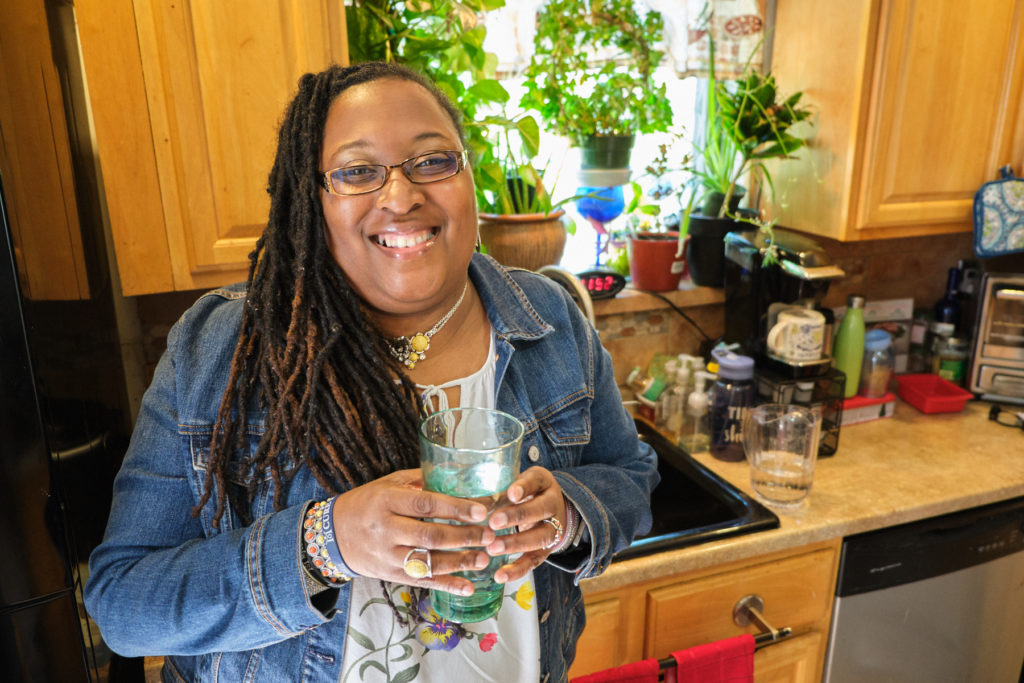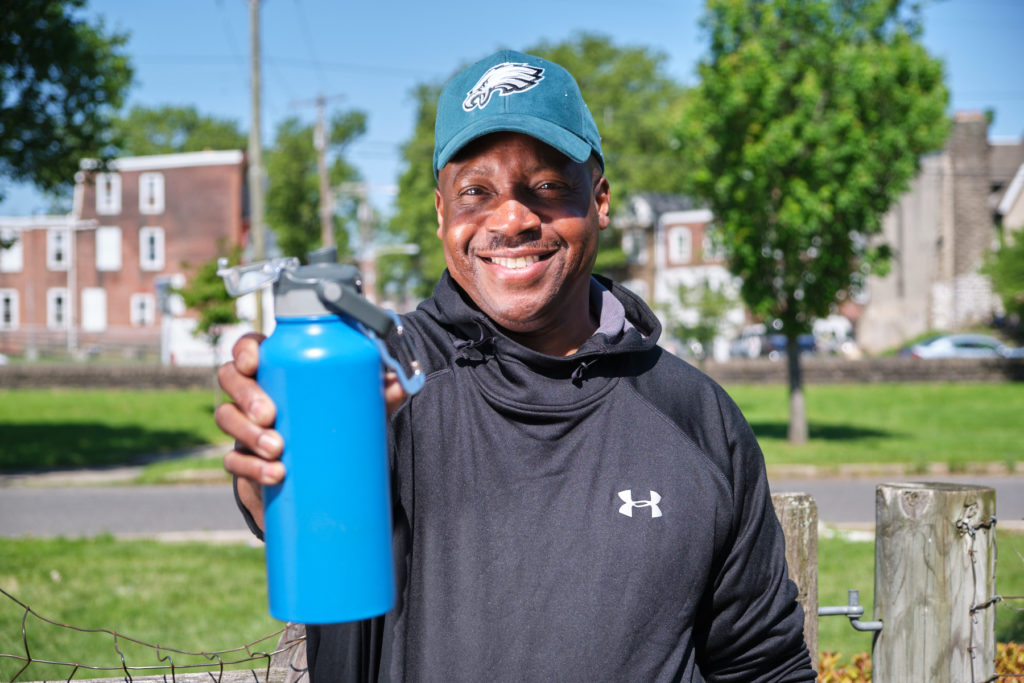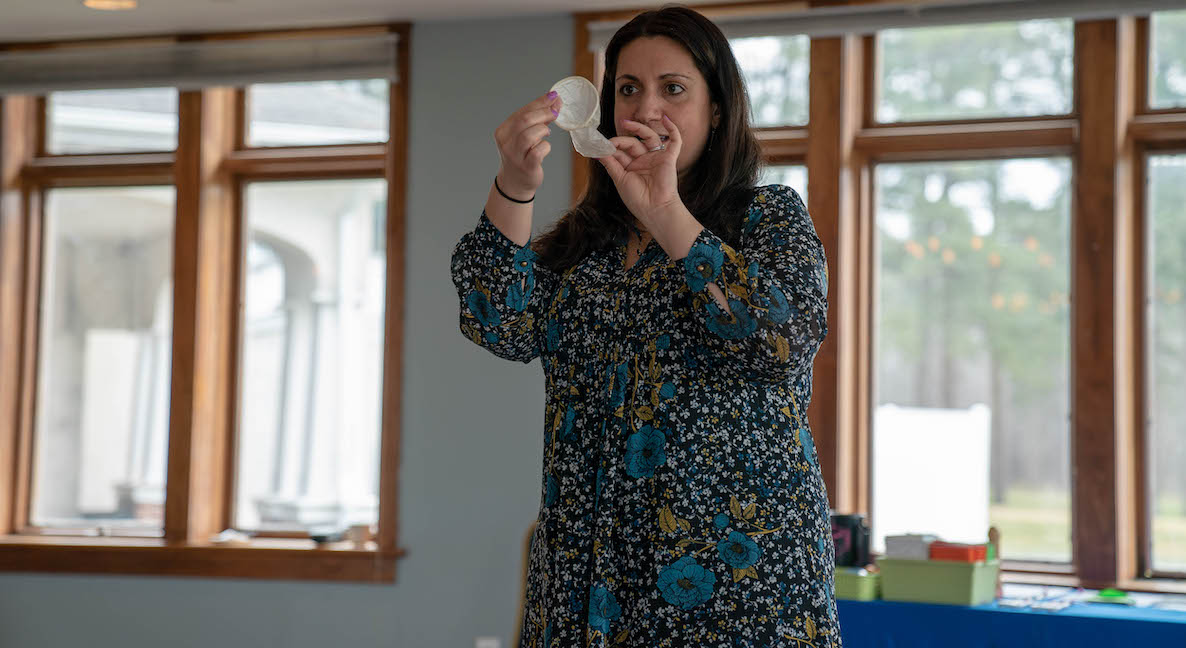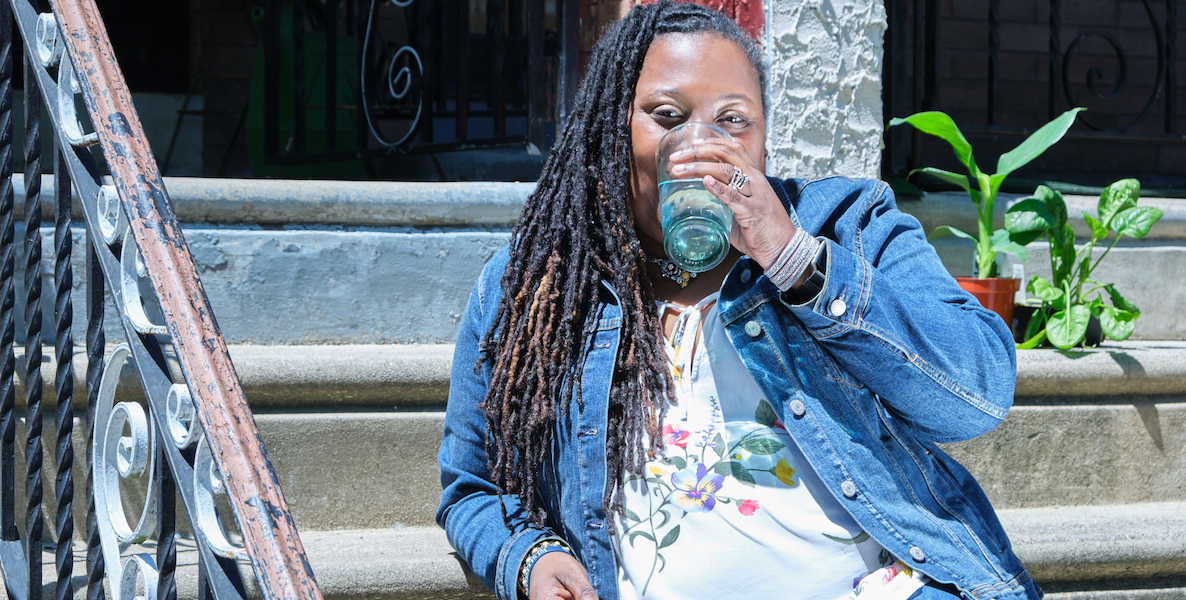When the Philadelphia Water Department decided in 2016 to start its Customer Satisfaction Survey with the question, “What kind of water are you drinking at home?” it was meant to be an ice breaker, a question for participants to—figuratively—get their feet wet before moving onto the real questions about bill-paying practices and the like.
After all, the answer to the question seemed obvious: City water was fresh, clean, safe, and cheap, so city residents must be drinking it. Right?
Wrong. As it turns out, 40 percent of survey respondents said they drink bottled water in their homes, and a disproportionately large number of them were the people who could least afford to do so. More recent versions of this same survey show that 54 percent of residents with a high school diploma or less choose bottled over tap, compared to 14 percent of residents with a college degree or more. And 71 percent of Latino residents and 63 percent of black residents drink bottled water, compared to just 18 percent of their white counterparts.
Three years later, a partnership of four organizations—the Philadelphia Water Department, ImpactED at the University of Pennsylvania, PennEnvironment Research and Policy Center, and The Water Center at Penn—are on a mission to change that with Drink Philly Tap, a public awareness campaign educating city residents about the environmental, financial, and physical benefits of drinking tap water. The project officially launched in December, and aims to get Philadelphians drinking tap water by asking them to take the Tap Water Pledge. When they take the pledge, residents promise to drink tap water, carry a reusable water bottle while on the go, ask for tap when offered bottled, and share the pledge with friends.
While having residents sign a pledge does not absolutely guarantee they will abide by it, research shows that using pledges to incentivize behavior is effective for activities ranging from wearing a seatbelt to eating healthy foods.
“Once we found out that 40 percent of people were drinking bottled water at home we were kind of shocked and it became a really important indicator,” explains Nina Hoe Gallagher, Director of Research & Evaluation at ImpactED and the lead researcher in creating and analyzing the original 2016 survey.
“People who are big proponents of bottled water say they do it because it’s convenient,” Gallagher says. “And then people who didn’t drink bottled water would say, ‘How on earth is it convenient for you to go to the supermarket, lug the heavy cases into your car, then lug them into your house?’”
Through a series of focus groups since 2017, ImpactED and PWD identified three main barriers to wide-spread drinking of city tap water. The first issue is trust—at many levels. “The water system is really complicated,” explains Gallagher. “You have to have trust that when you look in to the Schuylkill and Delaware, that that water actually can be treated.” On top of that, you have to trust the city’s pipes to be lead-free, your home’s pipes to be lead-free, and, more generally, your city government and its dedication to serving you. With water crises occurring in cities like Flint, Michigan, where disenfranchised communities have borne the brunt of the consequences, maintaining trust of such a complicated system can be difficult. And various non-governmental water tests, like those from Tern Water filter company—with results that sometimes vary from the City’s—have only made things harder to navigate.
The second issue is taste—many people reported simply not liking the way Philly tap water tastes. This, of course, is a subjective issue, but PWD says there are ways to make tap water taste better that many people fail to utilize.
![]()
The third issue is a bit of a paradox: convenience. Gallager and her team found in the focus groups that people who drink bottled water believe that doing so is more convenient than drinking from the tap. “It was actually really interesting to watch it play out in the focus groups,” she explains. “People who are big proponents of bottled water say they do it because it’s convenient. You know, ‘I grab a bottle from the fridge, I throw it away when I’m done. I run in a store, I grab a bottle on the go.’ And then people who didn’t drink bottled water would say, ‘How on earth is it convenient for you to go to the supermarket, lug the heavy cases into your car, then lug them into your house?’”
With this crucial information in hand, the four-organization partnership launched a campaign to change these perceptions through public engagement. But they’re not just going door to door themselves to spread the word. According to Gallagher, in the focus groups, “We also asked them, ‘Well, who do you trust?’ And they said, ‘We trust the people in our neighborhood, and everyone in my neighborhood drinks bottled water.’”
![]()
Drink Philly Tap leverages that trustworthiness. They put out a call for community ambassadors—local influencers who could talk to their community members about the safety and affordability of the water that comes out of their tap. They received more than 600 applications, and hired and trained 19 ambassadors in May.
Those ambassadors are now out on the streets of their neighborhoods in West and North Philadelphia, and have committed to working 50 hours between June and October spreading the truth about Philly’s tap water in exchange for a $600 stipend. They’re reaching out to community groups, presenting in schools, churches, and rec centers, and tabling at events to fight the perceptions uncovered in focus groups. At least four hours each month will be spent engaging with local residents, while the remaining hours could be spent traveling, attending meetings, or uploading data.
With water crises occurring in cities like Flint, Michigan, where disenfranchised communities have borne the brunt of the consequences, maintaining trust of such a complicated system can be difficult.
“They have a lot more clout than I or a colleague of mine do,” says PWD spokesperson Hailey Stern.
Monika Davis, a 48-year-old West Philadelphia resident and Drink Philly Tap Ambassador, says that when she heard about Drink Philly Tap on the news, the idea clicked for her immediately. “I’m a former boy scout mom, so it made sense to me,” she explains. “We learned about leaving no trace in the environment when we’re out camping, and about how the plastic affects the ecosystem.”
Davis is also block captain of the 200 block of North Wilton Street, a Philadelphia committee person, and a board member of charter school Global Leadership Academy, so she knows a thing or two about community engagement—and, like Drink Philly Tap was looking for, she knows a lot of people. “I would always encourage the boys to find a way to be a part of their community and make a change, and sometimes you can only make a change if you inform people about the impact of what they’re doing,” she explains. According to Davis, becoming an ambassador is just one more way for her to be “impactful” in her Philadelphia community.

In talking to residents about the safety of the city’s tap water, Drink Philly Tap and its ambassadors are detailing the treatment it goes through, how it compares to bottled water, and how to handle the threat of lead pipes. PWD has three drinking water treatment plants spread across the city—many of the ambassadors toured one to see the treatment process in action—where the water is “treated 24/7 and monitored constantly,” according to Stern. Daily tests occur throughout the city to confirm the water is safe. The department also has a lab that researches new technology and the most up-to-date treatment processes.
![]()
Currently, the city’s tap water goes through an 8-step process that involves disinfection, the adjusting of pH levels, and the addition of fluoride prior to traveling through the city’s and your home’s pipes. This process is regulated by the Environmental Protection Agency, and PWD releases annual reports detailing the water’s quality. (This has not kept advocates from taking issue, at times, with the city’s testing methods.) Bottled water, meanwhile, is regulated by the Food and Drug Administration, which has lower standards for testing, and is often simply tap water encased in a plastic bottle.
Residents may still worry that lead pipes will contaminate the otherwise safe water. None of the city’s water mains or pipes are lead, but some old homes do have lead pipes. Stern says the water goes through an anti-corrosion treatment that prevents the lead in pipes from leaching into the water. Every three years, PWD tests the water in at least 50 homes with lead plumbing to confirm that this treatment is effective, and has always found that it is.
Still, if Philly residents are concerned they might have lead pipes and that it may be impacting their drinking water, all they need is a coin and a magnet to test it themselves. If you do have lead pipes, Drink Philly Tap suggests flushing the water—allowing it to run on cold for a few minutes—if you haven’t used it in several hours. This uses up any water that may have been sitting idle in your pipes, and pulls from the fresh water in the water main under the street. And PWD offers interest-free loans for residents who have lead pipes and want to replace them.
Drink Philly Tap also offer residents tips for making tap water taste better, such as flushing the pipes, chilling it in a pitcher in the fridge or, if they want to go a step further, using a pitcher with a filter.

As for convenience, Drink Philly Tap and its ambassadors are talking about cost. Bottled water, at its lowest, costs $1 each. Reusable water bottles can run as low as $10, and tap water is half a cent per gallon.
In addition to the ambassadors, PennEnvironment Research and Policy Center has hired Drink Philly Tap interns and has incorporated this information into its day-to-day canvassing activities, with an emphasis on the impact of drinking bottled water on the environment: plastic bottles, ironically, are one of the most common forms of pollution in the rivers that provide us drinking water. And Gallagher has seen for herself that they’re taking the message far and wide. “I was doing a trail cleanup in Wissahickon and was intercepted to take the pledge,” she laughs.
PWD is engaging the public in another way separate from the Drink Philly Tap campaign, though with just as much engagement moxie as the ambassadors: the Philly Water Bar. Every Thursday from noon to 1 this summer outside of City Hall, PWD employees—and, sometimes, guest bartenders such as City Councilman Mark Squilla—are pouring pitchers filled with cold water right from the tap, a free sample meant to introduce residents to how good Philly tap water can taste.
City residents can follow the @PhillyH2O social media accounts and share #DrinkTapPHL photos for a chance to bartend themselves. The Water Bar has also visited events across the city, and has engaged nearly 2,000 residents since launching in April—measured by the number of cups they’ve distributed.
“We want to talk to people about water and the easiest way to do that is to give them a sample and facilitate a conversation,” explains Stern. “It really mimics the actions of a bartender, and is a really unique engagement tool.”
The team behind Drink Philly Tap is also committed to hosting two citywide events in its first year of work, though they haven’t yet been finalized. They also want to engage with 10 employers and professional organizations—pediatricians, dentists, teachers—in an effort to get to the root of where people get their information.
“Employers have a tremendous amount of influence over their employees,” explains Gallagher, and people reach out to their children’s doctors and dentists regularly to ask about the safety of tap water. In fact, after Gallagher wrote a 2018 op-ed about drinking tap water, she received inquiries from several pediatricians about whether it was really okay to tell parents it was safe. “They said, ‘I struggle with this everyday,’” says Gallagher. “People, especially from disenfranchised communities, reach out and ask. They are in need of knowledge and information.”
The project is funded for its pilot year by the William Penn Foundation. What will happen to the project after that runs out is uncertain. Gallagher says she hopes to find additional funders to make the project sustainable.
While the team would love to eventually see a citywide shift in water drinking habits, Gallagher says that such a shift is unlikely in just one year. Their main goal for this pilot year is for 10,000 people to take the Drink Philly Tap pledge. They’ve received 5,000 pledges since it went live on paper in the spring and online in June. Eventually, they would also like to see the demographic gap in who trusts the water and who doesn’t close.
“If people know that they can trust the water, we’ll have a better relationship with our customers,” says Stern. “We at the Water Department are really proud of the water that we’re delivering.”
Photo by Michael Francis Kelley







